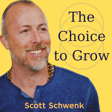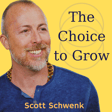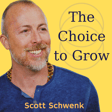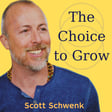
Transforming Burnout and Fear Into Fuel and Leadership: Carl Lindeborg's Journey to Wholeness
In this spacious and soul-touching dialogue, Scott Schwenk is joined by Carl Lindeborg—founder of the Flow Festival, wellness entrepreneur, and integrative guide through the thresholds of the human spirit. Together, they explore what it means to return to wholeness in a fractured world—how to meet intensity with breath, how to turn fear into fuel, and how the practices of presence, nature connection, and conscious leadership can realign our deepest purpose. With stories from his journey through burnout, fatherhood, entrepreneurship, and stillness, Carl offers luminous reflections on living from the inside out.
Deeply curious about human development, Carl Lindeborg has sought out learning in many places, from studying with the Dalai Lama at his home in Dharamsala to participating with global networks like Conscious Capitalism. With a Masters from the Stockholm School of Economics and first career as a management consultant, Carl has worked for over twenty years with people and organizations in change as an advisor, consultant and teacher, both in Sweden and internationally.
Carl has extensive experience as programme director and faculty member at SSE Executive Education, Oxford Leadership and Companions for Leadership. He’s been a guest speaker at Harvard Business School and published some 25 articles in the Swedish business magazine Affärsvärlden.
Carl just recently released his newest book The Authentic Shift: Inner Development for a Changing World.
Scott Schwenk
Scott’s teachings, courses and private mentoring guide leaders, seekers and creatives to explore their deepest selves in service of thriving on all levels of being, both individually and relationally.
You can receive a free guided meditation and explore Scott’s courses, workshops, retreats, training and master coaching at https://scottschwenk.com and can find him on Instagram @thescottschwenk.



